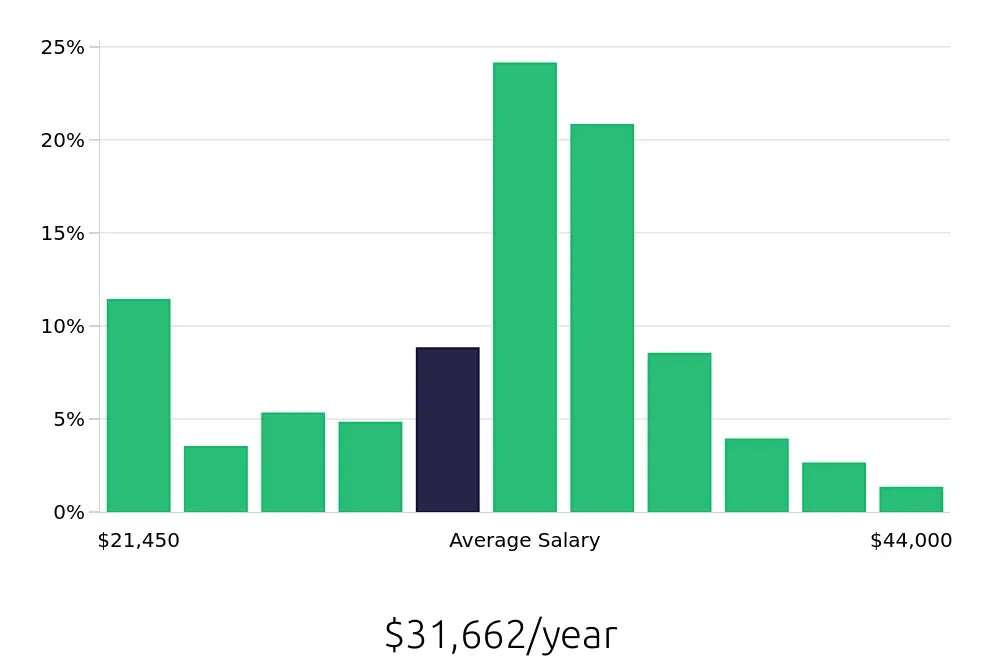Position
Overview
A Casino Cashier plays a vital role in the operations of a casino. This position ensures that all transactions are processed accurately and quickly. It involves handling cash, checks, and credit card payments. Cashiers must maintain a neat and organized work area.
The responsibilities of a Casino Cashier go beyond just handling money. They often assist patrons with questions about games or services. Cashiers also ensure the safety and security of the financial transactions. They report any suspicious activities to security personnel. This role requires strong attention to detail and excellent customer service skills. Effective communication and the ability to work under pressure are also important.
Becoming a casino cashier offers a dynamic and exciting career path in the entertainment industry. This role involves handling money and ensuring accurate transactions. Here is a clear outline of the steps needed to embark on this career.
First, gaining relevant education is crucial. Most casinos prefer candidates with a high school diploma or equivalent. Some may require additional coursework in business or accounting. Next, develop strong customer service skills. Cashiers interact with guests daily, so being friendly and professional is important. Attention to detail is also necessary to ensure all transactions are accurate.
The time it takes to become a casino cashier varies based on the path taken. Some enter the role with prior experience or education in finance or hospitality. Others complete a specialized training program at the casino. On average, the journey lasts between one to three months. This period includes both classroom learning and on-the-job training.
Training programs often span four to six weeks. They cover essential skills like handling cash and electronic payments, managing transactions, and ensuring compliance with gaming laws. Additionally, aspiring cashiers learn customer service skills to handle inquiries and resolve issues. Many casinos also offer further training as part of their onboarding process. This helps new hires gain confidence in their role and adapt to the casino environment. Upon successful completion, new cashiers can start working independently, supported by experienced staff.
A Casino Cashier is responsible for handling currency transactions between patrons and the casino, ensuring accurate cash handling, and maintaining a safe and professional gaming environment. The role requires strong attention to detail, excellent customer service skills, and the ability to work in a fast-paced setting.
Responsibilities:
Qualifications
A Casino Cashier plays a vital role in the hospitality and gaming industry. They handle money, check identification, and assist guests with questions. This role requires attention to detail and strong communication skills. A Casino Cashier must stay calm under pressure, as they often deal with large sums of money and handle high-stakes situations.
Working as a Casino Cashier has its advantages and disadvantages. On the positive side, the job offers opportunities for steady employment and often includes benefits like health insurance and retirement plans. The role can also provide an opportunity to work in a dynamic and fast-paced environment. However, the job can be stressful, especially during busy times. Shifts may include evenings, weekends, and holidays. It is important to consider these factors when exploring this career path.
Here are some pros and cons to think about:
Job seekers interested in the casino industry may find the role of a Casino Cashier appealing. This position involves handling cash transactions, ensuring accuracy, and providing excellent customer service. According to the Bureau of Labor Statistics (BLS), the average number of job positions available per year is 581,200. This indicates a steady demand for skilled Casino Cashiers across the country.
However, it is important to note that job openings for Casino Cashiers are projected to decrease by 10.4% from 2022 to 2032, as per the BLS. Despite this decline, the average national annual compensation for Casino Cashiers stands at $30,750, with an hourly rate of $14.78. This offers a stable and competitive salary for those entering or transitioning into this role. Job seekers should weigh these factors to make informed career decisions.
Overall, the role of a Casino Cashier remains a viable career path. While the number of positions may decrease, the existing roles offer a stable income and the opportunity to work in a dynamic and lively environment. Aspiring Casino Cashiers should consider the job outlook, salary, and personal interest in the casino industry when exploring this career option.
